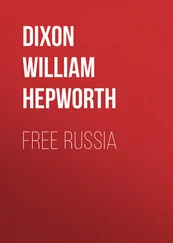Nikolai Nekrasov - Who Can Be Happy and Free in Russia?
Здесь есть возможность читать онлайн «Nikolai Nekrasov - Who Can Be Happy and Free in Russia?» весь текст электронной книги совершенно бесплатно (целиком полную версию без сокращений). В некоторых случаях можно слушать аудио, скачать через торрент в формате fb2 и присутствует краткое содержание. Год выпуска: 2005, Жанр: Поэзия, на английском языке. Описание произведения, (предисловие) а так же отзывы посетителей доступны на портале библиотеки ЛибКат.
- Название:Who Can Be Happy and Free in Russia?
- Автор:
- Жанр:
- Год:2005
- ISBN:нет данных
- Рейтинг книги:3 / 5. Голосов: 1
-
Избранное:Добавить в избранное
- Отзывы:
-
Ваша оценка:
- 60
- 1
- 2
- 3
- 4
- 5
Who Can Be Happy and Free in Russia?: краткое содержание, описание и аннотация
Предлагаем к чтению аннотацию, описание, краткое содержание или предисловие (зависит от того, что написал сам автор книги «Who Can Be Happy and Free in Russia?»). Если вы не нашли необходимую информацию о книге — напишите в комментариях, мы постараемся отыскать её.
Who Can Be Happy and Free in Russia? — читать онлайн бесплатно полную книгу (весь текст) целиком
Ниже представлен текст книги, разбитый по страницам. Система сохранения места последней прочитанной страницы, позволяет с удобством читать онлайн бесплатно книгу «Who Can Be Happy and Free in Russia?», без необходимости каждый раз заново искать на чём Вы остановились. Поставьте закладку, и сможете в любой момент перейти на страницу, на которой закончили чтение.
Интервал:
Закладка:
All white, dressed in white,
With his face shrunk awry, 20
His dissimilar eyes;
In his button-hole fastened
A little white cross
(It's the cross of St. George,
Some one says in a whisper);
And standing behind him,
Ipát, the domestic,
The faithful old servant,
In white tie and shirt-front
Is brushing the flies off. 30
Beside the Pomyéshchick
On each hand are sitting
The beautiful ladies:
The one with black tresses,
Her lips red as beetroots,
Each eye like an apple;
The other, the fair-haired,
With yellow locks streaming.
(Oh, you yellow locks,
Like spun gold do you glisten 40
And glow, in the sunshine!)
Then perched on three high chairs
The three little Barins,
Each wearing his napkin
Tucked under his chin,
With the old nurse beside them,
And further the body
Of ancient retainers;
And facing the Prince
At the foot of the table, 50
The black-moustached footguards
Are sitting together.
Behind each chair standing
A young girl is serving,
And women are waving
The flies off with branches.
The woolly white poodles
Are under the table,
The three little Barins
Are teasing them slyly. 60
Before the Pomyéshchick,
Bare-headed and humble,
The Elder is standing.
"Now tell me, how soon
Will the mowing be finished?"
The Barin says, talking
And eating at once.
"It soon will be finished.
Three days of the week
Do we work for your Highness; 70
A man with a horse,
And a youth or a woman,
And half an old woman
From every allotment.
To-day for this week
Is the Barin's term finished."
"Tut-tut!" says the Barin,
Like one who has noticed
Some crafty intent
On the part of another. 80
"'The Barin's term,' say you?
Now, what do you mean, pray?"
The eye which is bright
He has fixed on the peasant.
The Elder is hanging
His head in confusion.
"Of course it must be
As your Highness may order.
In two or three days,
If the weather be gracious, 90
The hay of your Highness
Can surely be gathered.
That's so,—is it not?"
(He turns his broad face round
And looks at the peasants.)
And then the sharp woman,
Klím's gossip, Orévna,
Makes answer for them:
"Yes, Klím, Son-of-Jacob,
The hay of the Barin 100
Is surely more precious
Than ours. We must tend it
As long as the weather lasts;
Ours may come later."
"A woman she is,
But more clever than you,"
The Pomyéshchick says smiling,
And then of a sudden
Is shaken with laughter:
"Ha, ha! Oh, you blockhead! 110
Ha? ha! fool! fool! fool!
It's the 'Barin's term,' say you?
Ha, ha! fool, ha, ha!
The Barin's term, slave,
Is the whole of your life-time;
And you have forgotten
That I, by God's mercy,
By Tsar's ancient charter,
By birth and by merit,
Am your supreme master!" 120
The strangers remark here
That Vlásuchka gently
Slips down to the grass.
"What's that for?" they ask him.
"We may as well rest now;
He's off. You can't stop him.
For since it was rumoured
That we should be given
Our freedom, the Barin
Takes care to remind us 130
That till the last hour
Of the world will the peasant
Be clenched in the grip
Of the nobles." And really
An hour slips away
And the Prince is still speaking;
His tongue will not always
Obey him, he splutters
And hisses, falls over
His words, and his right eye 140
So shares his disquiet
That it trembles and twitches.
The left eye expands,
Grows as round as an owl's eye,
Revolves like a wheel.
The rights of his Fathers
Through ages respected,
His services, merits,
His name and possessions,
The Barin rehearses. 150
God's curse, the Tsar's anger,
He hurls at the heads
Of obstreperous peasants.
And strictly gives order
To sweep from the commune
All senseless ideas,
Bids the peasants remember
That they are his slaves
And must honour their master.
"Our Fathers," cried Klím, 160
And his voice sounded strangely,
It rose to a squeak
As if all things within him
Leapt up with a passionate
Joy of a sudden
At thought of the mighty
And noble Pomyéshchicks,
"And whom should we serve
Save the Master we cherish?
And whom should we honour? 170
In whom should we hope?
We feed but on sorrows,
We bathe but in tear-drops,
How can we rebel?
"Our tumble-down hovels,
Our weak little bodies,
Ourselves, we are yours,
We belong to our Master.
The seeds which we sow
In the earth, and the harvest, 180
The hair on our heads—
All belongs to the Master.
Our ancestors fallen
To dust in their coffins,
Our feeble old parents
Who nod on the oven,
Our little ones lying
Asleep in their cradles
Are yours—are our Master's,
And we in our homes 190
Use our wills but as freely
As fish in a net."
The words of the Elder
Have pleased the Pomyéshchick,
The right eye is gazing
Benignantly at him,
The left has grown smaller
And peaceful again
Like the moon in the heavens.
He pours out a goblet 200
Of red foreign wine:
"Drink," he says to the peasant.
The rich wine is burning
Like blood in the sunshine;
Klím drinks without protest.
Again he is speaking:
"Our Fathers," he says,
"By your mercy we live now
As though in the bosom
Of Christ. Let the peasant 210
But try to exist
Without grace from the Barin!"
(He sips at the goblet.)
"The whole world would perish
If not for the Barin's
Deep wisdom and learning.
If not for the peasant's
Most humble submission.
By birth, and God's holy
Decree you are bidden 220
To govern the stupid
And ignorant peasant;
By God's holy will
Is the peasant commanded
To honour and cherish
And work for his lord!"
And here the old servant,
Ipát, who is standing
Behind the Pomyéshchick
And waving his branches, 230
Begins to sob loudly,
The tears streaming down
O'er his withered old face:
"Let us pray that the Barin
For many long years
May be spared to his servants!"
The simpleton blubbers,
The loving old servant,
And raising his hand,
Weak and trembling, he crosses 240
Himself without ceasing.
Интервал:
Закладка:
Похожие книги на «Who Can Be Happy and Free in Russia?»
Представляем Вашему вниманию похожие книги на «Who Can Be Happy and Free in Russia?» списком для выбора. Мы отобрали схожую по названию и смыслу литературу в надежде предоставить читателям больше вариантов отыскать новые, интересные, ещё непрочитанные произведения.
Обсуждение, отзывы о книге «Who Can Be Happy and Free in Russia?» и просто собственные мнения читателей. Оставьте ваши комментарии, напишите, что Вы думаете о произведении, его смысле или главных героях. Укажите что конкретно понравилось, а что нет, и почему Вы так считаете.











